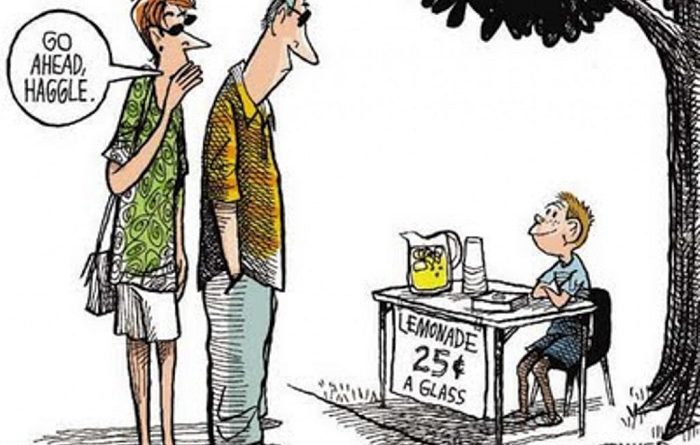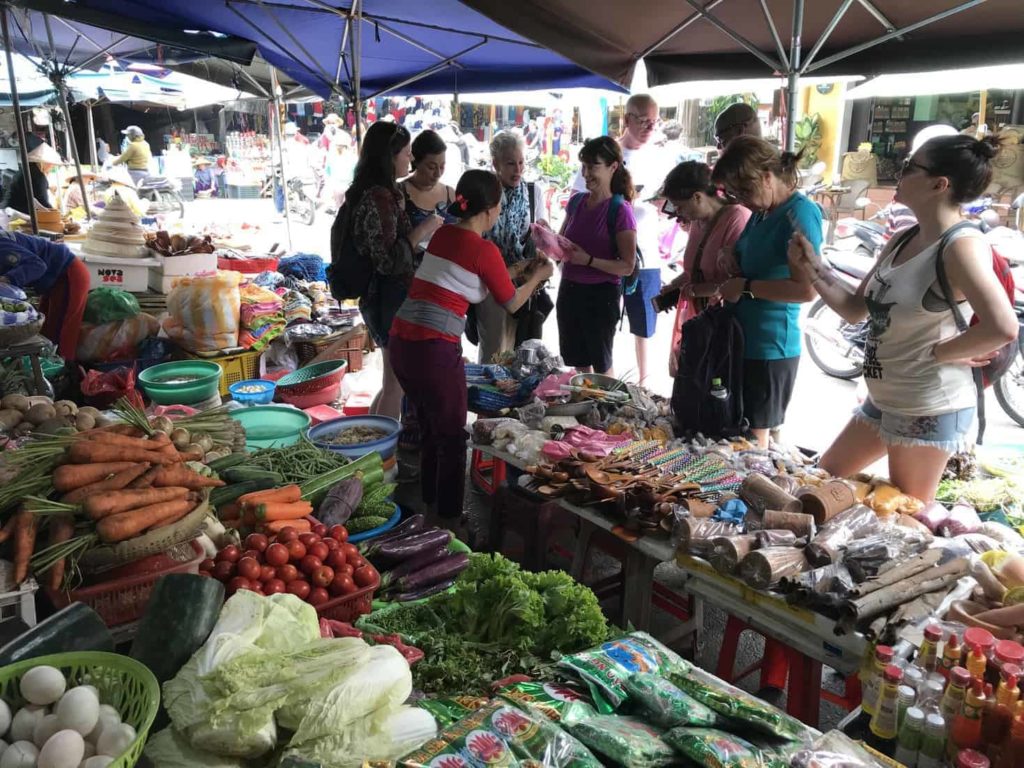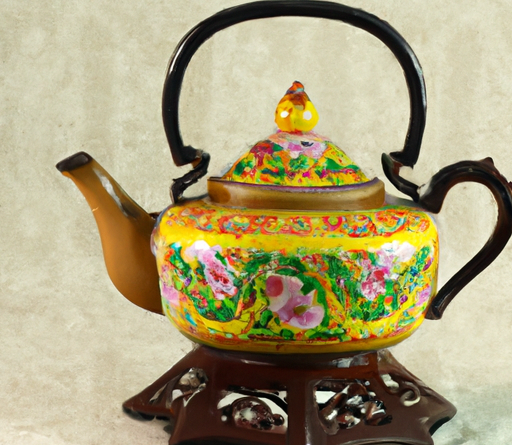
Are you someone who loves to explore markets and street stalls while traveling? If so, you might be wondering – Is it necessary to haggle when shopping in these places? Well, in this article, we will dive into the world of haggling and explore whether it is truly necessary or just a cultural practice. Whether you’re a seasoned haggler or someone new to the concept, we will provide you with all the information you need to navigate your shopping experiences confidently.
In this article, we’ll explore the benefits of haggling, such as potentially getting a better deal on your purchase and experiencing the thrill of bargaining. We will also discuss the cultural aspects of haggling, including how it varies from country to country and what to expect in different markets. Additionally, we’ll provide you with some helpful tips and tricks to improve your haggling skills and ensure you’re getting the best value for your money. So, if you’re curious about whether you should haggle next time you visit a market or street stall, read on to find out more!
Introduction
When it comes to shopping in markets and street stalls, one question often comes to mind: Is it necessary to haggle? Haggling, also known as bargaining, is the practice of negotiating the price of goods or services. This ancient tradition can be found in many cultures around the world, and it holds a unique place in the shopping experience. In this article, we will explore the concept of haggling, its advantages and disadvantages, its cultural significance, and provide some tips on how to haggle successfully. Finally, we will also discuss alternative options for those who prefer not to haggle and the personal preferences that come into play when deciding whether to engage in this practice.
Explaining the concept of haggling
Haggling is a form of negotiation that takes place between a buyer and a seller. Instead of accepting the marked price, the buyer attempts to secure a lower price through discussion and persuasion. This practice has been around for centuries and has its roots in the ancient bartering system. Haggling can occur in various settings, from local markets to street stalls and bazaars, where the goods are often handmade or unique.

This image is property of www.bloggeratlarge.com.
The prevalence of haggling in markets and street stalls
Haggling is particularly prevalent in markets and street stalls around the world. In many countries, this is an integral part of the shopping experience. It is not uncommon to see both locals and tourists engaging in lively negotiations over the price of goods. The sellers, who are often small business owners or artisans, are generally open to haggling and expect buyers to make an offer lower than the initial price. This practice adds a sense of excitement and cultural immersion to the shopping experience.
Advantages of Haggling
Haggling offers several advantages for shoppers. Firstly, it provides an opportunity to save money on purchases. By negotiating the price, you may be able to secure a lower price than the marked one, potentially saving a significant amount of money. This is particularly advantageous when shopping for high-priced items or when buying in bulk.
Furthermore, haggling can sometimes lead to the acquisition of better quality goods. By engaging in conversation with the seller and showing genuine interest, you might gain access to higher quality products that are not openly displayed. Sellers may be more willing to showcase their best merchandise and provide additional benefits or perks to customers who haggle successfully.
Lastly, haggling can help build relationships with sellers. When you engage in friendly negotiations, you create a bond and establish trust with the seller. This can be beneficial for future purchases, as the seller might offer you special deals or discounts as a sign of appreciation for your loyalty.

This image is property of rccl-h.assetsadobe.com.
Disadvantages of Haggling
While haggling has its advantages, it also comes with some disadvantages. One of the main drawbacks is that it can be a time-consuming process. Negotiating prices requires both time and patience. It often involves back and forth conversations, consideration of various offers, and sometimes waiting for the seller to consult with others. This can be a hurdle for those who prefer a quick and efficient shopping experience.
Another challenge of haggling is the difficulty in determining fair prices. When there is no fixed price, it can be challenging to gauge how much an item is worth. This is especially true for tourists or first-time hagglers who may not be familiar with the local market value. This uncertainty can lead to confusion and possibly paying more than the item is worth.
Additionally, haggling may sometimes lead to frustration or embarrassment. If negotiations do not go as planned or if the seller refuses to lower the price, it can be disheartening. Some shoppers may feel uncomfortable or embarrassed about engaging in such conversations, especially if they are not accustomed to haggling or if they fear being perceived as rude or pushy.
Cultural Significance of Haggling
Haggling is not just a simple transactional process; it holds cultural significance in many societies. It has been a traditional practice handed down through generations and is deeply rooted in the cultural identity of communities. Haggling reflects the local customs and values, allowing visitors to engage with the cultural heritage and gain insights into the local way of life.
By preserving the tradition of haggling, communities safeguard their cultural identity. In an increasingly globalized world, where standardized shopping experiences are becoming the norm, haggling serves as a reminder of the uniqueness and diversity of various cultures. It allows for the continuation of long-held practices that have shaped local economies and contributed to the social fabric of communities.
Moreover, haggling serves as a form of social interaction. It brings people together, creating a shared experience and fostering a sense of community. Haggling requires communication, negotiation skills, and mutual understanding between the buyer and seller. It is an opportunity to connect with others, exchange stories, and establish relationships beyond the transactional aspect of buying and selling.

This image is property of thegrocerystoreguy.com.
Tips for Successful Haggling
To make the most out of haggling, here are some tips for successful negotiations:
-
Researching market prices beforehand: Before entering a market or street stall, familiarize yourself with the general price range of the items you are interested in. This will give you a starting point for negotiations and help you determine whether the seller’s initial price is fair.
-
Starting with a lower counteroffer: Begin negotiations with a counteroffer slightly below the price you are willing to pay. This allows room for the seller to make a counteroffer, and both parties can gradually arrive at a mutually agreeable price.
-
Maintaining a confident and friendly demeanor: Approach haggling with a positive attitude and a smile. Engage in friendly conversation with the seller, showing genuine interest in their products. Building rapport can increase your chances of a successful negotiation.
Appropriate Situations for Haggling
Haggling is most commonly practiced in markets and street stalls, as well as in vacation destinations with a haggling culture. These settings often involve informal, small-scale businesses where the prices are not fixed. Street vendors and artisans are usually open to negotiations, and haggling is considered an accepted norm. Second-hand stores and flea markets are also suitable places for haggling, as the prices are often flexible and open to discussion.
This image is property of assets3.thrillist.com.
Etiquette of Haggling
When engaging in haggling, it is essential to respect local customs and traditions. Familiarize yourself with the typical haggling practices of the country or region you’re visiting. Be mindful of cultural norms and avoid disrespectful behavior or excessive bargaining. It is important to strike a balance between negotiating for a fair price and acknowledging the seller’s livelihood.
Excessive haggling can be seen as disrespectful or greedy, so it is crucial to know when to accept the seller’s final price gracefully. Although the negotiation process is part of haggling, it should not be taken to the extreme, causing discomfort or strained relations between the buyer and the seller.
Alternatives to Haggling
For those who prefer a fixed-price shopping experience, there are alternatives to haggling. Fixed-price stores offer the convenience of set prices without the need for negotiations. Online shopping platforms also provide a negotiation-free environment, allowing buyers to compare prices and make purchases without the hassle of face-to-face negotiations.

This image is property of southeastasiabackpacker.com.
Personal Preferences on Haggling
Whether to haggle or not ultimately comes down to personal preference. Some people embrace the haggling experience, finding it exciting and rewarding. They enjoy the challenge of securing a good deal and engaging in cultural interactions. On the other hand, some individuals may choose to avoid haggling due to time constraints, lack of confidence, or a preference for convenience.
For many, striking a balance between haggling and convenience is essential. They may choose to haggle selectively, focusing on items of particular interest or value. This allows them to enjoy the benefits of negotiating while still maintaining a more straightforward shopping experience for everyday purchases.
Conclusion
In conclusion, haggling is not necessarily necessary when shopping in markets and street stalls, but it can enhance the overall experience. It offers opportunities for savings, access to better quality goods, and the chance to build relationships with sellers. Haggling also has cultural significance, preserving traditions and providing social interaction. However, it does have its drawbacks, such as being time-consuming and the difficulty of determining fair prices. Ultimately, each individual must consider their own circumstances and personal preferences when deciding whether or not to engage in haggling.







